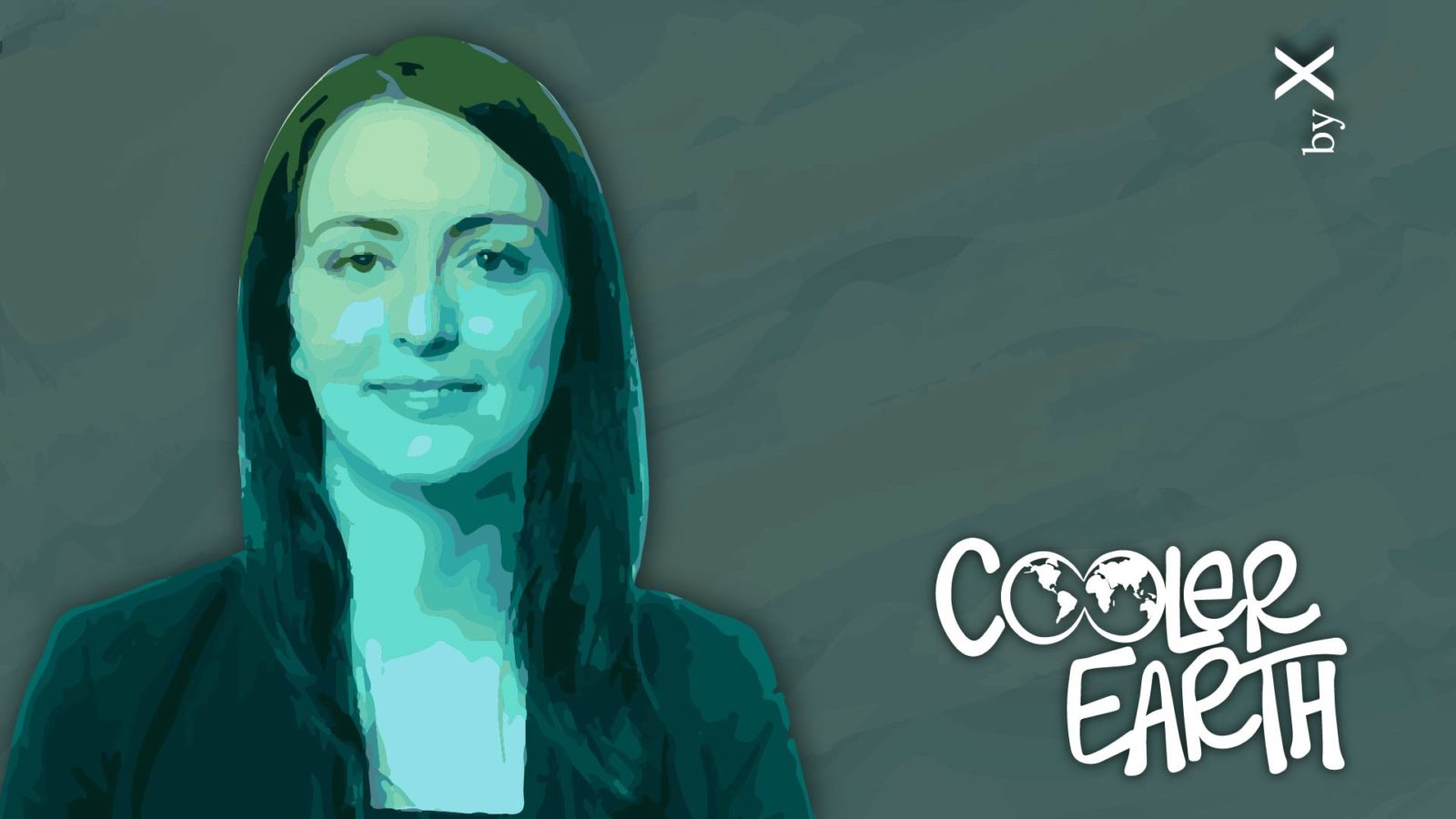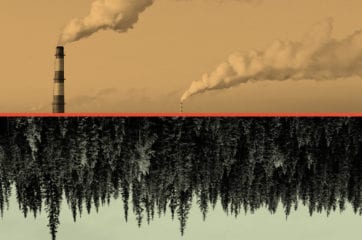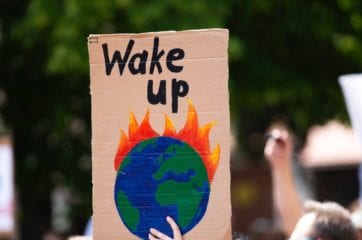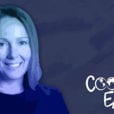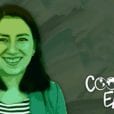Lauren Kurtz, Executive Director of the Climate Science Legal Defense Fund
It is no secret that many of those with deep ties or interests in the fossil fuel industry have worked long and hard to undermine the science and research around the causes and consequences of manmade climate change — originating from toxic pollution in our atmosphere mostly caused by the burning of oil, gas, and coal. These concerted, and well funded efforts have gone as far as the personal intimidation of climate scientists, and others seeking to understand and stop the climate crisis.
This week we are joined by Lauren Kurtz, the Executive Director of the Climate Science Legal Defense Fund (CSLDF), where she works tirelessly to preserve the integrity of scientific research and defend the livelihoods of scientists facing legal battles.
The Climate Science Legal Defense Fund protects the scientific endeavor by providing support and resources to scientists who are threatened, harassed, or attacked due to their findings or fields of study.
In this episode, we talk with Lauren about the importance of the legal fight for science in the face of mounting, concerted attacks to suppress, invalidate, and intimidate scientific researchers and the parallels of science denial we’re seeing between climate science, and COVID-19.
Below is a transcript of the webinar, edited and trimmed for clarity and brevity.

Maria Virginia Olano (MVO): Lauren thank you so much for making the time to speak with us today, I’m so excited to virtually meet you!

Lauren Kurtz (LK): Likewise, thanks so much for having me.

MVO: I wanted to ask, how are you? How have you been through quarantine, and how have the past couple months been?

LK: I’ve been fine, it’s been an interesting time for sure. How about you?

MVO: Likewise, same. We’re based in Boston and we’re still all working from home. Are you slowly getting back in the office?

LK: We’re pretty much a remote team at this point. We’re getting the mail checked and such, but it’s not the way it used to be for sure.

MVO: Where are you based?

LK: New York City, so March and April were especially interesting.

MVO: I can imagine.

LK: A real crash course in what happens when you ignore scientific predictions.

MVO: Absolutely, I want to get into a little bit later about how this has also related back to your work a lot. Do you want to start off by telling us about you, you’re the Executive Director of the Climate Science Legal Defense Fund (CSLDF). For people who are not familiar, can you give us an overview of what you did, what brought you here, and what the organization currently does?

LK: I will start off by saying that the organization was founded back in 2011, a little before the current political era, because even back then scientists were dealing with politicization around science. This is a very long-standing issue unfortunately. In 2011, we were founded as a PayPal page actually to crowdfund for the defense of Michael Mann, a pretty prominent climate scientist, who’d really been put under fire by a number of, for lack of a better term, climate change denying groups. In particular, they were trying to use state laws to target him. In the early days of the organization, we worked more on state level issues — these days we work more on federal issues. But, it’s the same type of work to help scientists who find themselves targeted because of their research, scientists who are facing censorship or retaliation, frivolous lawsuits, any manner of things of which a lawyer would help defend them.
I joined the organization in 2014. Previously, I had been working at a law firm and really wanted to get more involved in environmental work and doing something more meaningful. I started off as a biology student. Back in college that’s what I majored in, and at one point I thought I might want to pursue that, but realized that I really admired scientists but working in a lab didn’t really jive with my skill set. So I went to law school, but I really wanted to apply that love for science and protecting science and here I am now.

MVO: It’s amazing work that you’re doing. I think a lot of us know maybe at the higher level what is happening in terms of denying science, but what might be more distant is these very personal and very targeted attacks that scientists are dealing with increasingly now. I wanted to ask you about that, and I see that a big pillar of the organization is also communicating these things that are happening beyond just defending scientists.
What was surprising to you, or when did you realize, that this was such a pattern of personal, vicious attacks and why is it so important that more people know about it?

LK: I definitely was aware of ClimateGate in 2009 and 2010. I definitely was aware that that was a really targeted attack on scientists. I think what really struck me was the breadth of that happening. I mean we hear about some of the prominent issues but unfortunately it’s much more pervasive than that and I don’t think I fully realized the extent of it until I started working at CSLDF.
I do think that people today are somewhat more up to speed on this, unfortunately I think because it has grown so much that it’s a lot harder to ignore. In the last few years with the Trump administration and some of the other things that have happened, I think it’s brought this issue more to the forefront. Which is terrible that it’s happening to such an extent, but I’m also grateful that people are starting to realize and recognize it more because that’s obviously the first step to us combating and fixing it.
In 2009, email correspondence between researchers from the University of East Anglia’s Climate Research Unit were hacked and released to the public. The content of the emails was used by climate-deniers to falsely counter claims of anthropogenic climate change. The series of events was dubbed “Climate Gate.” Read more.

MVO: Right. What are some of the things that CLSDF is doing to combat these attacks in a larger, more systemic way?

LK: Our first line of defense is representing individual researchers and really helping the folks who are affected by this. When you talk about systemic reform that’s a much bigger issue so we do, as you noted, public education to help people understand these issues and promote reform measures. I’ve been heartened that in the last year or so there have been some broad, large scale legislative initiatives. The House Scientific Integrity Act, for example, which is still pending, but I think it’s gaining a groundswell.
As noted before, the pandemic has really had people realize, in a very stark way, that this is an issue that is not going away. If we continue to ignore and silence scientists, we are just going to have an increasing number of issues resulting from that.
H.R.1709 – Scientific Integrity Act was introduced in 2019 by Representative Paul Tonko of New York. The bill aims to “establish certain scientific integrity policies for Federal agencies that fund, conduct, or oversee scientific research, and for other purposes.” Read more.

MVO: Let’s talk about that for a minute. A lot of the reaction from the environmental community was a little bit of deja vu from scientists and people working on this field knowing the playbook that was being carried out in order to discredit infectious disease experts and experts in public health. But, I think also it was kind of a shock to a lot of people just because of how direct of a threat this pandemic is. We’re literally seeing, almost with our own eyes and especially you in New York, the literal bodies piling up and the death caused by this. Even in the face of that, there’s this denial of science and denial of the facts, so I wonder how this experience has reshaped or influenced how you think about this issue in your work?

LK: You hit the nail on the head with the ways in which this is just a recurring pattern unfortunately, but I think it has helped me understand ways to communicate it better to folks.
Being able to point to the pandemic is a very visceral experience that we’re all undergoing. It’s really unfortunate that we’re here, but it could also be a learning experience for us to hopefully stave off having to go through another broad scale disruption as a result of climate change. Which is where we’re headed if we don’t listen to the scientists, but if we do listen to the scientists we can not end up here again, so it’s important for people to really understand this at a deep level. I think the pandemic has made some progress on that front, which I suppose is a silver lining from the whole thing.
One of our board members actually put it well, ‘COVID-19 is the pop-quiz, but climate change is the final exam.’ It’s basically the same issue just in a different context. This one has hit us faster and harder than climate change, but that doesn’t mean that climate change is not a much larger disruption facing us in the coming decade.

MVO: It’s definitely been an eye-opener for a lot of people, especially as it relates to disasters and their disproportionate effects on who is suffering and why they are. But at the same time, do you also see the powers pushing back also at a great scale in doubling down on denial, doubling down on their attacks on people that are trying to basically do their jobs that aren’t supposed to be political. Have you seen some of that? How has it manifested?

LK: They’re doing the same thing as they’ve done before, it’s been pretty effective in the climate change arena. It’s not necessarily the same actors. The fossil fuel industry, for example, has been very effective in silencing and discrediting climate scientists over the years. They’re not the industry who’s really promulgating the COVID denial. In some ways, the COVID anti-science efforts I think are coming largely from inside the government because it’s very inconvenient to the current administration’s agendas. They have botched their response so badly that in some ways it’s an ongoing cover up.
Different actors, same script. I’m not sure I’ve seen a huge difference in how it’s played out on a tactical level, but the implications are very present for all of us.

MVO: Lauren, can you talk to us about the current work you’re focusing on now?

LK: We have a couple things in the hopper right now. We’re putting out some materials about how scientists can be involved in campaigns and the election process and be more politically active. While recognizing that scientists who, for example, get federal funding have some constraints that are worth being aware of, but generally not too prohibitive. It’s a general know your rights piece for scientists who want to be politically active in the 2020 campaign.
The other set of things we have going on is to help scientists understand the scientific integrity policies that are in place at federal agencies and other institutions. We think it’s important to have a legal framework that allows scientists to do things like file complaints when there are scientific integrity violations. Most agencies do have some policies in place that we try to distill for folks. We’re also putting out guidelines for how to improve these policies, which I hope, at a federal level, we can start doing in 2021. Even on a longer time scale, it’s an important conversion to being about ways in which we can improve the ways scientists can fight back against attempts to censor or manipulate or otherwise silence science.

MVO: I saw the Silence Tracker that you’re doing with Columbia Law School, and I might say it’s quite terrifying and fascinating going through it. Just the amount, I think there’s over 400 entries and listing of how this has happened just under this administration.
If you’re able, can you share a story or particular case that you’ve worked on that really illustrates how these powers are really insidious and can have a detrimental effect on individual people and on their important work as well?

LK: There’s a number of examples that I could give you, but one that has really stuck with me the past couple of years is Maria Caffrey, who you may have heard of, she’s a climate scientist who was at the National Park Service (NPS). She wanted to produce a report that identified different climate change scenarios based on emissions possibilities.
The government, at first, wanted her to omit any references to the human causes of climate change, which when you’re talking about different emissions scenarios is a fundamental premise. She, rightfully, pushed back hard against that attempted censorship and she was ultimately successful, but her position was terminated. And the scientific integrity complaint was found to not be a violation of NPS scientific integrity regulations because she had been successful in ultimately publishing the report. They basically said that attempted censorship is not actual censorship, which is a real travesty in my opinion, and goes to show the ways in which the powers that be will try to exploit loopholes to protect the status quo to not implement reform.
They’ll just continue to maintain that everything’s fine. It really comes at the cost of science, scientists, and all of us. I’m hopeful that the next administration can rectify some of the issues that have been languishing for many administrations frankly. These scientific integrity policies that I’ve referenced are a big issue for my organization because in principle, they should be really helpful and protective, and they have been at points. But, I think the current political situation has been a real stress-test and it’s shown a number of flaws and shortcomings that we need to rectify in order to really be able to protect scientific integrity in the way we need to be doing.
Read Caffrey’s op-ed, “I’m a scientist. Under Trump I lost my job for refusing to hide climate crisis facts.” Read more.

MVO: Absolutely. Do you think that scientists, specifically climate scientists and across a number of other issues that have become political, understand these battles or these struggles as kind of part of what they’re signing up for?
I see in a lot of Twitter threads of scientists talking to each other and communicating about the issues they might face in publishing or pursuing this kind of research. It seems kind of mind-blowing that this has to be part of the job description, but is it? Is this what you’re “signing up for?”

LK: It is mind blowing that it is a consideration. I would not say it’s the first thing a scientist should focus on. Our goal as an organization is, in many ways, to take that mental load off scientists so they don’t have to worry about it. That is one of the goals of these anti-science forces is to really distract and take scientists away from their research, and occupy a space that scientists and society would be better served by scientists being able to do their work.
I don’t want to over emphasize the need for scientists to be cognizant of this threat, but at the same time I can’t deny that this is a real thing that scientists need to be aware of. To the extent that any scientists have issues regarding any of this or fears or concerns, I encourage you to reach out to us or another legal group. Even if it’s just to know your rights or how to protect yourself in the arena, we’re happy to help with that. I do think that younger scientists are aware that this is a possibility. I think some of them are very excited to take on this fight — it’s galvanizing in a way, to really fight for science. It’s a pretty righteous fight in my opinion.
I think a lot of the younger scientists are, in particular, really enthusiastic about taking on that mantle. I also think that scientists who are less interested in that particular aspect of things shouldn’t be persuaded to not do science, there’s many great ways to be a scientist. You don’t necessarily have to be one of the more confrontational ones in order to do important work that helps the world and impacts our understanding of the world.

MVO: And I think it’s also indicative of how important the work is when you talk about righteousness. It’s the very need to actually publish and go ahead and do the research that these powerful interests are, for various reasons, trying to get you not to do.
In the last season of the podcast, we actually spoke to a couple scientists, science communicators, and even journalists, on this shift from staying in your lane, doing the work, and just publishing your work — whether you’re a journalist or a scientist — and letting that go towards a need to become advocates for the work, the research, and the truth. I think it’s a very curious balance that people who are seen as unbiased and on the side of facts have to manage because on the one hand, your work can be following the scientific method or journalistic integrity, but if that in itself is being attacked then how do you not advocate for that? In some ways, science advocates are also discredited for that and there are a lot of instances in which people opposed to such work use that as a way to say ‘how are you unbiased if you’re also advocating for policy,’ for example.
How does that interact with your work, or the people you work with, that need to strike that balance and still stand up for your work?
Catch up on season three of CoolerEarth here.

LK: There’s obviously tension just within the scientific community about what is appropriate for a scientist to do as a scientist. My personal opinion is that people who are researching these critical issues should absolutely feel empowered, if they so choose, to speak out about the need to tackle them. There’s a variety of ways in which scientists can do that, either as a scientist or a citizen. I would not say that scientists have a duty to stay quiet about their research, if a scientist feels that the best way to contribute is to just focus solely on the research I wouldn’t begrudge them.
I feel inspired by the scientists who take on the responsibility to educate lawmakers and the public about the importance of addressing climate change and other scientific issues facing us — I think that’s a really important part of public education. One of the things we’ve seen recently, especially in the climate change arena, is that scientists who do get involved in advocacy around this are sometimes the ones most targeted. I think that speaks to your earlier point that they’re doing some of the most impactful stuff surrounding that. They’re the ones who, in the eyes of those who prefer to not take action on climate change, are the most dangerous because they’re the ones most likely to lead to action on climate change.
In no way do I want to encourage those scientists to stay quiet; I do want to encourage that they do it safely and within the legal bounds of their employment or visa requirements. Scientists with actual questions about how to navigate their personal situation that’s one of the areas in which we encourage scientists to reach out to us.
My personal opinion is that scientists are a very important part of this conversation and should not be told to focus solely on science just for the sake of not meddling in other arenas. This is really a cross-disciplinary issue and scientists have a lot to offer.
Get in touch with the Climate Science Legal Defense Fund here.

MVO: They really do. That’s why I think that resources like the ones you’re providing are so incredibly critical for scientists to understand that they are not necessarily alone or have to face these seemingly insurmountable institutions or pressures on their own.
I’m curious about how you’ve seen this shift since you’ve started, we talked about how this was before the current administration, but either including that or larger scales, how have you seen attacks on science and scientists change or shift throughout your time with CSLDF?

LK: I think there are two shifts happening. One is post November 2016, a huge swath of the scientific community got galvanized in a way that they had not been before and had not been to the degree they’d been before. It really became a crisis point that the scientific community needed serious attention, and they have given to it. The number of scientists who, for example, running for office is really impressive. Scientists who are getting more politically engaged, active, and generally speaking out about the importance of taking action on climate change is really heartening.
The other shift happening is that as the younger generation of scientists that have graduated or just entered programs have brought a new dimension to all this. Youth activism not only with climate change, but also Black Lives Matter, and the intersectionality in science is also a very important conversation being had and is driven by younger folks coming into the scene and realizing the ways in which traditional models of science need to be adjusted. That is not exactly the folks in my group, but I’ve been watching and appreciating.

MVO: Definitely, I think we see that across so many industries. This final wake up call that the ways in which we have been doing things are very broken and have to be revisited and reimagined.
In terms of the perpetrators of this denial or these attacks, who would you say those are? For people who are unfamiliar or maybe uninformed to the scale in which this is happening, who are the people or the organizations behind this massive suppression of science and scientific findings?

LK: I would say that by and large they can be categorized as folks who the scientific research inconvenient, and I think that’s true for both with the pandemic and climate change, and other areas —environmental toxicology for example.
Corporate interests have historically been a part of this, the government and current pro-industry focused federal administration falls under this. I want to say that sometimes I think people are not cognizant that they’re doing it, but I do think there is a very human emotion to want to shoot the messenger. When someone comes to you with research that is contrary to your business model or your personal ethos or your ideology, it’s very easy for you to want to discredit them. What we’ve seen is a very broad scale effort of that over the past couple of decades, some of it very targeted and insidious, and some of it has been more nebulous.
For example, in the federal government I think there’s an overall atmosphere that climate science needs to be diminished or lessened in some ways. Even by people who, in a different administration, would be interested in promoting it, they’re feeling a crunch for jobs security or not wanting to deal with political fights so they’d rather just not promote the research that should be promoted. They’re not censoring exactly, but they’re certainly not doing what they would in a more free society in order to promote important work.

MVO: Right. You just hit on the “free society” and I think a lot of the ways in which we think about America as being a place where there is freedom and there is high regard for science and the scientific pursuit and that clashes a lot with what we see happening. So I think even well-meaning people who see this and say there’s no way it can be that institutionalized or that insidious that this is happening.
What is your advice for people who are highly concerned about this, who don’t necessarily work in the space, what are some ways in which regular people, concerned citizens can be engaged in the fight to preserve scientific integrity?

LK: Speaking out against it and making it a part of everyday conversation is really important. It has been seen for a number of years as a fringe issue, and I think that’s really unfortunate because it may be sort of niche when you think about all the issues facing the world. But at the end of the day it is actually hugely impactful. It’s important we give it the attention it deserves and we need to be talking more about this and making conversations around it more mainstream.
Some think that, paradoxically, this has happened with the Trump administration. It has really brought these issues to the forefront and people have been talking and thinking about what a critical problem it is.
Secondly, I really encourage everyone to vote in the 2020 election, especially with the pandemic. This election cycle is going to be extremely weird, and I think that absentee voting should be something we’re working on to encourage people to sort that out early; figure out their voting protocols, whether that’s volunteering for a campaign or working for the district; helping educate your community about rights or even just making sure you yourself have this sorted out well in advance and you know how you’re going to be voting is really important these days.
Third, frankly I’ll have to put a plug to groups who are working on this issue. Obviously I care very deeply about my niche organization, but there are a lot of groups doing really great stuff. We work to particularly help climate scientists , but anyone who cares about the future of science and democracy there are a number of great groups doing wonderful things. If you have, in these tough times, the ability to support one or more of them I think that’s a great thing to do.

MVO: As you say, this seems very niche—the defense of scientists attacks or prosecution for their work seems like a very niche thing, but I think it is one of those things that when you scale it up it’s chipping away slowly but surely at the scientific integrity and the way that we’re able to solve the massive issues in policies and society that we need and rely on science to do correctly and appropriately.
In closing, because I know we’re running out of time, what does the future of science and scientific integrity look like to you, in an ideal world where organizations like yours are no longer needed?

LK: I would love that. It sounds weird to say, but I would truly love that. There are a number of issues that we need to solve, and the problems over the past few years have actually, in some ways, highlighted the need to solve and has helped increase the likelihood that we will in fact solve them.
They include things like increasing the scientific literacy of average folks; helping people realize the importance of science and being able to do their own fact-checking and misinformation checks to help discern what is “fake news” and what is not. Making sure that we prioritize science and related infrastructure in our governance, whether that is at the state, local, or federal level and making an effort to improve infrastructure that allows science to grow and flourish. Listening to scientists and implementing policies that actually allow us to address the issues that the scientists are finding. That is sometimes a complicated issue, but it’s something we need to speed a lot of time doing.

MVO: There’s certainly a lot of work to do. But as you said, I’m also hopeful in the currents and trends that we’re seeing people getting mobilized, and really standing up for and defending what are in many ways the pillars of modern democracy.
Lauren, thank you so much for your time and I very much look forward to the episode airing.

